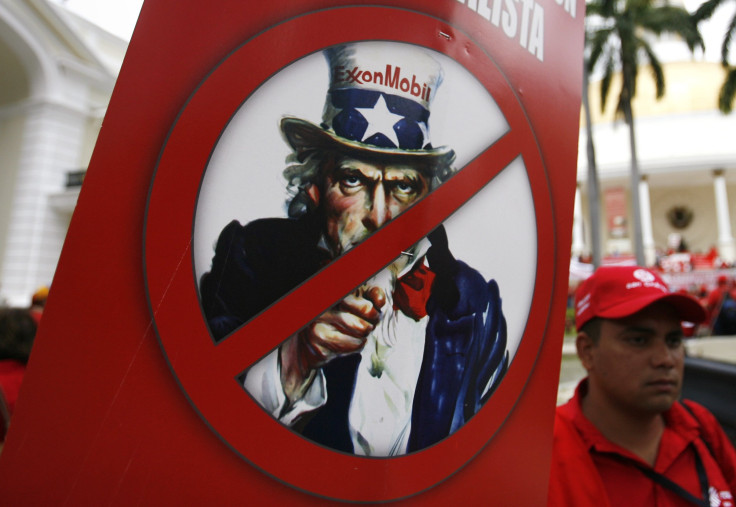Venezuela Ordered To Pay Exxon Mobil $1.6B Over Asset Expropriation

An international arbitration panel has ordered Venezuela to pay U.S. oil giant Exxon Mobil $1.6 billion in compensation for assets expropriated by the Hugo Chavez government. The company had claimed up to $16.6 billion over the nationalization of its Cerro Negro project and other losses in 2007, according to a BBC report.
The ruling was handed down by the World Bank's International Centre for Settlement of Investment Disputes, or ICSID. Analysts said that Venezuela's government had dodged a bullet with the limited award, according to a report from Reuters. The agency said that it was still unclear whether the country would pay, or seek to have the award annulled. Venezuela withdrew from the ICSID in 2012.
Venezuela's foreign minister described the decision as “reasonable,” adding that it was a victory for Venezuelan sovereignty over "exaggerated claims."
In a statement, Exxon Mobil said that “the decision confirms that the Venezuelan government failed to provide fair compensation for expropriated assets... [Exxon Mobil] accepts Venezuela's legal right to expropriate the assets of our affiliates subject to compensation at fair market value.”
Venezuela's current government, under President Nicolas Maduro, is fending off over 20 similar claims from foreign companies as a result of predecessor Hugo Chavez's drive to nationalize many natural resource projects, according to an Associated Press report. The agency reports that the same arbitration panel ruled last month that the country had to pay U.S. company Gold Reserve Inc $740 million for taking control of a mining project in 2008.
The ruling comes at a difficult time for Venezuela, as its leftist government is facing hard-currency shortages that have led to investor concerns over its ability to pay overseas debt, according to a Wall Street Journal report.
Risa Grais-Targow, an analyst at the risk consultancy Eurasia Group, told the Journal that, as a result, the country will “likely try to use legal challenges to delay compensation and to negotiate settlements with claimants that include bonds and oil assets, given its severe liquidity constraints.”
Venezuela must honor ICSID rulings to avoid default of sovereign bonds, according to Joe Kogan, an analyst at the Bank of Nova Scotia, quoted by Bloomberg.
Venezuela's economic woes have also affected other sectors of its economy. The U.S. warned in August that American airlines may stop flying to the South American country, as carriers are being prevented from repatriating $4 billion in earnings, due to the country's strict currency controls.
© Copyright IBTimes 2024. All rights reserved.






















